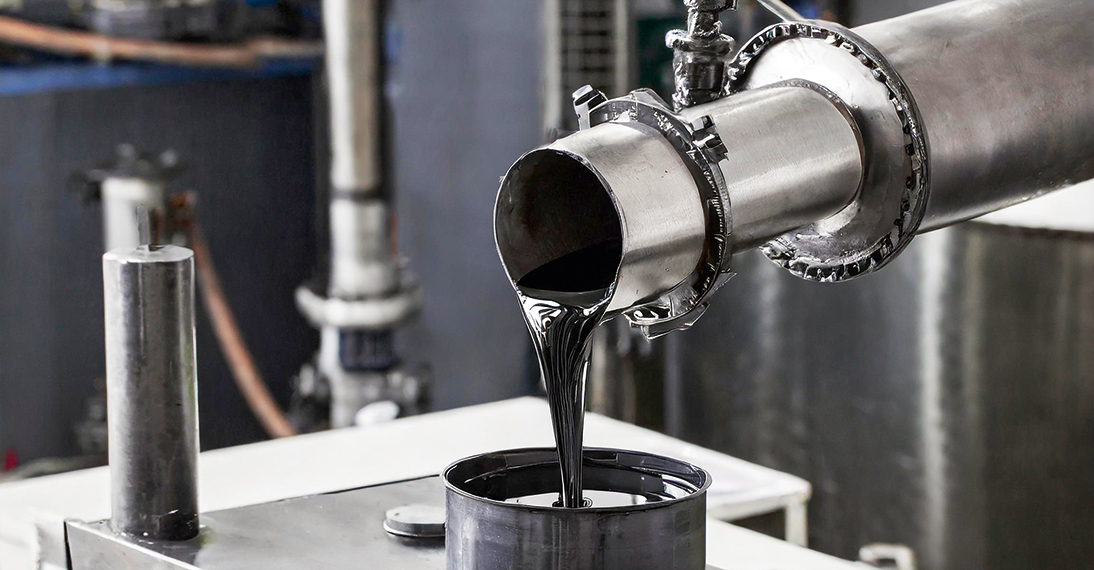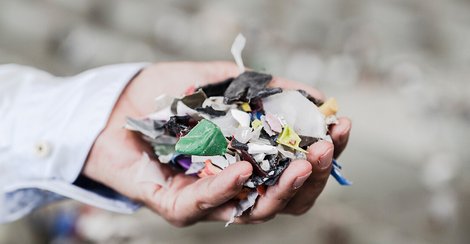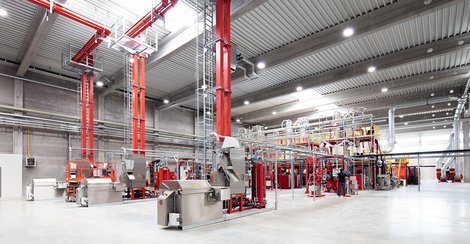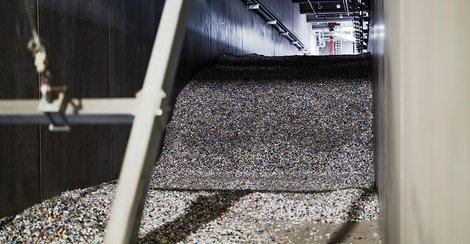Recycling at Any Price?
In the fight against plastic waste, there is said to be another method besides mechanical recycling, as practiced by GRAF: chemical recycling. The term has been causing a stir in the industry for a few years now. But are these processes really an alternative?
Declaring war on plastic waste: one of our missions at GRAF
At the Raw Materials Competence Centre in Herbolzheim, plastics from short-life packaging are sorted, melted down, and processed to create new, sustainable and, above all, durable environmental products. This complex procedure is known as mechanical or material recycling.
Chemical recycling takes a completely different approach. Plastic waste is broken down into its basic chemical components – as in the best-known and most widely discussed process: pyrolysis. The carbon compounds are processed in such a way that, in this case, an oil is produced – the basis for new plastics.
The topic emerged in 2018 and quickly gained media attention. Some people are talking about a miracle weapon in the fight against plastic waste. However, there has been no in-depth research into the topic to date, let alone an official definition of the term. So what is the truth about this miracle weapon? Not much, according to Dr Dirk Textor, Chairman of the German Federal Association for Secondary Raw Materials and Waste Disposal (Bundesverband Sekundärrohstoffe und Entsorgung e. V.) and part of our GRAF team.
The carbon footprint of chemical recycling is devastatingly bad
The reason for this is the complex, energy-intensive, and therefore expensive process behind it. Because plastic is a very stable material, a lot of energy has to be expended to break down the carbon compounds. ‘The carbon footprint is significantly larger than if I were to produce new plastic from non-recycled oil, regardless of resource conservation,’ says Textor. The situation is different with mechanical recycling using plastic recyclate, as we do it. The carbon footprint for mechanical recycling is small and, compared to the production of new goods, a lot of CO2 can be saved. ‘Mechanical recycling should always be the first option for all waste where it is possible,’ says Dr Julia Vogel from the German Federal Environment Agency. There is also an economic advantage: ‘Chemical recycling is quite expensive, especially compared to mechanical recycling,’ says the research assistant for waste technology and technology transfer.

Chemical recycling cannot compete with mechanical processes. Chemical recycling only has advantages when compared to waste incineration: "A recent study by the German Federal Environment Agency shows that chemical recycling reduces greenhouse gas emissions compared to the incineration of plastic waste. We therefore see chemical recycling as a possible supplement," says Dr Julia Vogel. The idea behind this is that the residues from mechanical recycling processes could be further processed chemically, thus closing the gap to energy recovery. According to Textor, however, this is inaccurate. ‘At GRAF, we know only too well from other companies how high the requirements for plastics for pyrolysis are. If you look at the sorting of the yellow bin, for example, it quickly becomes clear which material stream is suitable for chemical recycling: the one that is currently largely recycled mechanically.’
So why is the topic still on everyone's lips?
Pyrolysis is not a new discovery. The coal-oil plant in Bottrop existed as early as the 1930s, but pyrolysis was discontinued in Germany at the end of the 1990s. At that time, the process was no longer economically viable, but Textor suspects that there are new incentives today: ‘The legislator requires packaging to be recycled. On paper, chemical recycling meets this requirement, which should please politicians and the chemical industry alike.’ Currently, chemical recycling is hardly used in Germany. Less than one per cent of all plastic waste is chemically recycled each year. ‘The yield from chemical recycling is so low that it has little to do with recycling. Due to its more positive CO2 balance, the consistent promotion of mechanical recycling would be the much more attractive alternative,’ says Textor, looking to the future.




